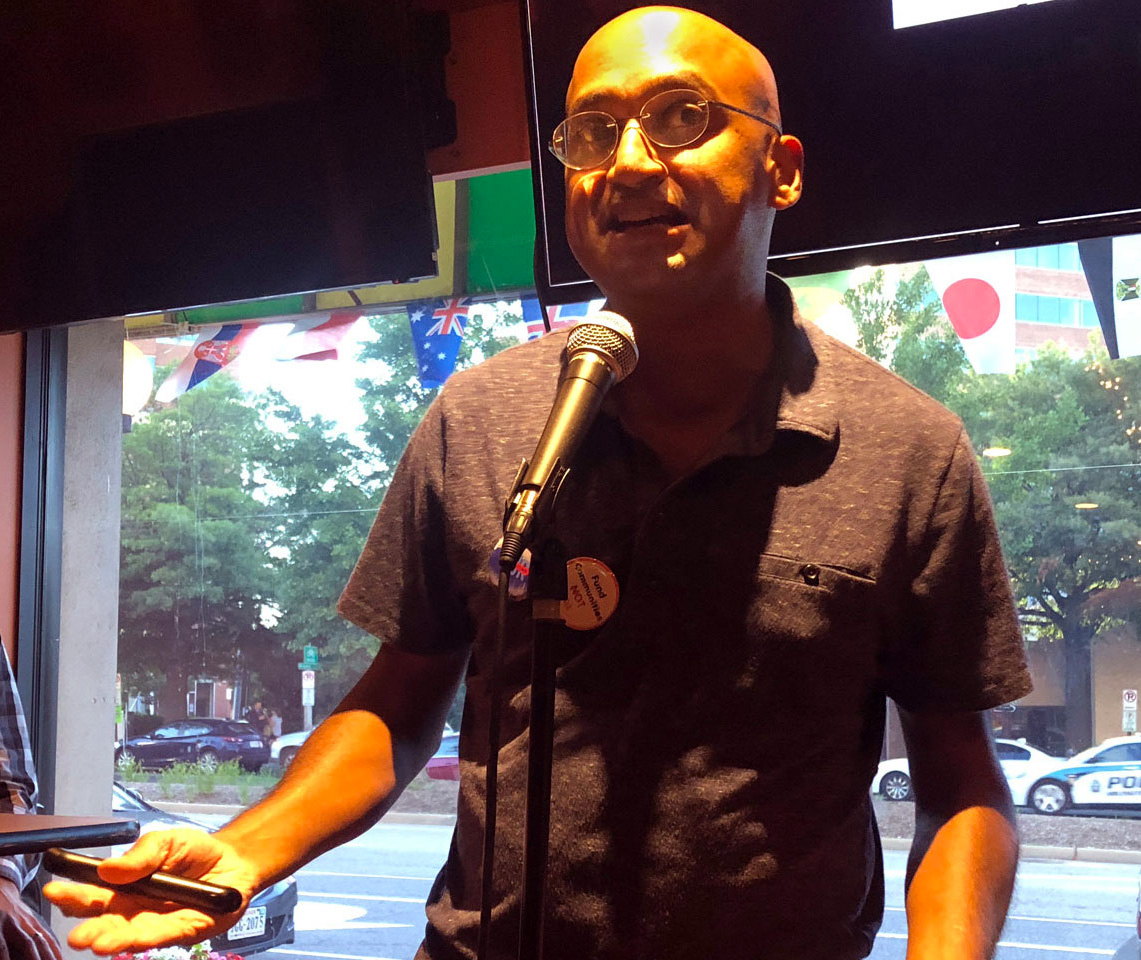
Dr. Roshan Abraham is our 2019 Day Lecturer. Prof. Newton was able to chat with him to learn a little bit more about his training and his scholarship.
We’ve heard you’ll be talking about the Bible and comics. Comics often involve origin stories. What’s your scholarly origin story?
I don’t really have a simple story about my academic training; I got to the study of religion through a very circuitous route. I’ll try to keep it brief.
I did my undergraduate studies at the University of Kansas, majoring in English and Classical Languages. When I went on to my PhD program at the University of Pennsylvania, I became interested in the ethnography of India in Greek Literature, which lead my to Apollonius of Tyana, the first century Neopythagorean sage who journeyed to India to study with the Brahmans. At the same time, I developed an interest in ancient magic, and, as luck would have it, a central part of Apollonius’ biography was the accusation of being a magos (a “magician”). At this point, all of my training was as a classicist, but, having grown up as a PK (preacher’s kid), it was hard for me not to notice similarities between Apollonius’ biography and the synoptic gospels.
You can learn more about Prof. Abraham’s work on the many lives of
Apollonius on the podcast, Hold That Thought.
The year I started my dissertation was the same year Annette Reed joined the religious studies department at Penn, which was on the other end of the hall from Classical Studies. Annette introduced me to the study of religion and, over the course of writing my dissertation, gave me all of my initial training in religious studies. I’d audit her courses, she’d give me reading lists, and, despite the fact that she wasn’t on my dissertation committee, she would spend countless hours discussing second temple Judaism, early Christianity, and religious studies theory and methodology. I got hooked quickly, but, since all of my religious studies training was essentially “off the books,” the likelihood of being able to continue in the field was very slim.
I was lucky, however, to have been hired at Washington University in St. Louis, jointly appointed in the Department of Classics and the Program in Religious Studies. During my time at WashU, I had so many opportunities to engage with Religious Studies, through teaching, advising, curriculum development, and professional service, and I found my disciplinary home in the academic study of religion.
Honestly, one of the many honors of having been invited to give the Day Lecture is knowing that Annette Reed is going to be your Aronov lecture in the same academic year.
I left WashU in 2016, due to a family decision to move to the DC area, and have since been following a non-traditional route in the academy. After three years of adjuncting at Georgetown, George Mason, and American University, I was hired as an advisor/instructor in American University’s First Year Program. I’m fortunate to have found a full-time position that still grants me opportunities to teach religious studies.

We look forward to hearing more!
Mark your calendars for the 2019 Day Lecture with Dr. Roshan Abraham. Tuesday, October 15, 2019 at 7:00pm in ten Hoor 30. And tune in Friday to the Study Religion blog to find out more about Dr. Abraham, his research, and his teaching. To keep up on social media, follow along at #Day2019.